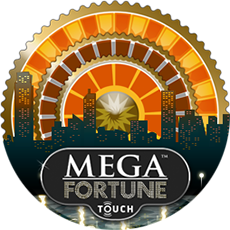If your internet connection was of good quality and wasn’t dropping out, and you actually received a website-based message instead of accessing our website (you were directed to another site, and didn’t just receive a “File not found” message or something similar from your browser), then it is likely that you were in a country that practices internet censorship of gambling websites.
Internet censorship is similar to traditional censorship of other materials, both conceptually and in terms of the issues that it raises. It is the control or suppression of publishing or accessing information on the internet. Internet censorship does pose a number of problems and unique challenges that are not shared by tradition censorship. One such difference is that national borders are far more permeable online than in real life. While in traditional censorship of, for example, books and magazines, governments can simply prohibit the material to be published in or brought into the country. However, with internet censorship, websites can be and often are hosted outside of the country and the government wishing to censor the websites has no control of them. Thus internet censorship usually works by preventing, or attempting to prevent, access to those websites, rather than dealing with the websites themselves. There are a number of ways in which this can be done, they are as follows. For means of getting around these various means of internet censorship, check our Frequently Asked Question “I’ve recently moved abroad and your website is blocked in my new country of residence. How do I get around this?”
- IP Blocking – This method works by blocking or denying access to a particular IP address. If the website in question is hosted in what is known as a “shared hosting server”, then all the websites on that same server will be blocked,, regardless of whether they contain content deemed inappropriate or forbidden. This means of blocking access will affect all IP-based protocols such as HTTP, FTP and POP.
- Packet Filtering – This method works by terminating the TCP packet transmissions once a certain number of “controversial keywords” are detected. This means of blocking access will affect all TCP-based protocols such as HTTP, FTP and POP. Search engine results pages are more likely to be censored, due to the fact that they contain many words repeated a number of times, because of the nature of the search engine results.
- Domain Name System (DNS) filtering and redirection – This method works by failing to reslve domain names or returning incorrect IP addresses. Similarly to IP Blocking, this means of blocking access will affect all IP-based protocols such as HTTP, FTP and POP.
- Connection reset – If a previous TCP connection has been blocked by the computer, then future connection attempts from either side will also be blocked for a period of up to thirty minutes. Other users or other websites may be blocked if the communication is routed to the location of the block, but this depends on the location of the block.
- Uniform Resource Locator (URL) Filtering – This method works by scanning the requested URL for particular target keywords, and does not pay attention to the domain name specified in the URL. This means of blocking access will affect HTTP protocol.
- Reverse Surveillance – Computers that are accessing certain websites, including Google, are automatically subjected to “reverse scanning” from the Internet Service Provider (ISP) in what appears to be an attempt to obtain more information from the “offending” system.
Internet censorship has recently become a hot topic for debate around the world. To give you an idea of varying levels of internet censorship we have provided some profiles of countries below and their respective policies on internet censorship:
North Korea
North Korea has been described by Reporters Without Borders, a Paris-based international non-government organisation advocating freedom of the press, as “the worst internet black hole in the world”. Only a select few citizens have access to the internet at all, amounting to approximately 4% of the total population, via Chinese internet connections which is heavily censored by the government. All websites are under government control. The level of government control over the internet, all other media and the private lives of its citizens is staggering. If you are stuck in North Korea, being unable to play the pokies online is likely going to be the least of your problems.
People’s Republic of China
Aside from North Korea, whose policy as we have said cannot even truly be considered internet censorship, the People’s Republic of China is one of the worst nations in the world for internet censorship. The Chinese government blocks any sites that discuss the 1989 crackdown on the protestors in Tiananmen Square, the Dalai Lama, Falun Gong (the religion/spiritual movement which has been banned by the government) – and that is just to name a few. Not only does the Chinese government block access to forbidden websites using the methods discussed above, but it also forces websites in China to employ people whose job it is to monitor all the content of the website and delete an objectionable content. Tens of thousands of people are paid by the government to post on internet bulletins and make their post favourable to the government and thus guide the bulletins overall apparent sentiment to be in favour of the government.
You might remember in March 2010 there was a lot of news coverage regarding Google closing its Chinese operations unless China altered its position and ceased to censor search results returned by the Google search engine. The Chinese government responded with a statement saying that all companies doing business within the country must follow its laws. The standoff has since quietly ended, with Google gradually softening its position toward China and indicating in June 2010 that the Chinese government had renewed Google’s license to operate a website in mainland China. Most commentators have observed that this renewal of business relations between Google and the Chinese government indicates that while Google may be uncomfortable kowtowing to the repressive regime, it is far more uncomfortable withdrawing from the massive market that China provides, now having more internet users than the United States of America.
Thailand
Given Thailand’s popularity as a holiday destination for Australians, and the fact that it censors gambling websites, it’s likely that if you are having the problem in this Frequently Asked Question you are in Thailand (although not for certain, as there are a lot of other countries out there that censor gambling websites).
Internet censorship in Thailand is achieved by using two different methods. Firstly, websites are directly blocked. The Royal Thai Police blocks around 32 500 websites and a further unknown and unspecified number of sites are blocked by the Communications Authority of Thailand. In addition to these sites that are blocked, the Ministry of Information and Communication Technology blocks more sites indirectly by requesting (informally) that the fifty four Internet Service Providers in Thailand, both commercial and non-profit, also block sites. While the Internet Service Providers are technically not legally obliged to comply with the request of the Ministry of Information and Communication Technology, the Permanent Secretary has stated that Internet Service Providers who fail to comply with the requests will be sanctioned by the government and suffer punitive measures such as restriction of bandwith or even the loss of operating licenses. This is powerful motivation indeed, and most if not all Internet Service Providers have complied with the requests to aid in censorship. In 2007, over 13,450 websites had been blocked by request, which represents more than a 500% increase since just the previous year. All of the websites are blocked in secret, and the criteria for blocking a website has not been made public by the government.
The Ministry of Information and Communication Technology announced plans in 2008 to introduce an “internet gateway system” to block all websites containing “lese majeste” content. That is, content that is deemed to be insulting to the Thai king or other members of the royal family. This gateway will cost in excess of 500 million baht.
Other Countries
If you’re thinking it’s just poorer countries, or non-Western countries, or countries without fully democratically elected governments that engage in internet censorship, then you would be wrong. Many if not most Western countries practise some form of internet censorship. There are reasonable arguments in favour of some censorship and most Western governments rely on these reasons. One of the main arguments in favour of internet censorship is that of child pornography. Child pornography, it is argued, is not a matter of personal choice or freedom. It is inherently abusive and there are not legitimate expressions of it. The act of someone viewing it further perpetuates the abuse of the child depicted, and all efforts must be made by governments to stamp out child pornography in society, and this includes censoring the internet and making those websites that show pornographic material containing children inaccessible to citizens. This is a strong argument, and many if not most people would agree with it, and consider the eradication of the sexual abuse of children for pornographic purposes (and other purposes) to be a worthy and necessary goal for their government.
Some people disagree however. Some of these people disagree because they are paedophiles and sexual predators , and their opinions can be safely ignored in the debate. There are however, other people who disagree with internet censorship for valid reasons. While these people recognise the strong argument in favour of eradicating child pornography, they argue that there are other compelling arguments to counter this. Firstly, they argue that governments have not proved themselves trustworthy in this regard, and do not deserve the faith of their citizens to only include those cites that contain child pornography. In fact many of the sites on a great many nations’ “blacklists” have been revealed not to contain child abuse or child sexual abuse material, but rather contain “normal” adult pornography. While some people may find pornography offensive, it is not a good idea for the government of a democratic country to be deciding what is acceptable material for sexual arousal and pleasure, outside the constraints of legality and consent, and any attempt by any government to do so should ring warning bells.
If you are under the impression that, okay maybe Western democratic countries are practising internet censorship but that it is not happening in Australia, you are mistaken. Many people will remember the recent scandal here in Australia when the internet censorship “blacklist” was released by Wikileaks in March 2009. The Australian Media and Communications Authority is charged with control over which websites will be filtered. The Authority claimed that the sites it had blocked had been blocked to protect children from graphic pornography and violence. When the list was released by Wikileaks it was revealed to include the websites of a tuckshop convenor, Queensland dentist and a kennel operator – all innocuous websites which have no place on a censorship blacklist apparently written to protect children from pornography and violence. Also on the list was the website of controversial artist Bill Henson, a much more alarming addition given the implication that the government is censoring art and creativity. The Australian Media and Communication Authority claimed after the release of the blacklist that the inclusion of Bill Henson’s website was the result of a “computer system caching error.” It also stated that it had “found that this is the only URL where a caching error resulting in the URL being incorrectly added to the list”.
So the Australian government is very much in the business of internet censorship, and many people find this very troubling indeed. You will however, be able to access Online Pokies Australia, all of our recommended sites, and any other gambling websites you might like to visit, as the Australian government won’t block these sites – unless they accidentally get on the list! For when you are overseas somewhere that is not so liberal and does not approve of gambling, check our “How do I get around internet filtering” Frequently Asked Question page.


 $7,159,773
$7,159,773
 $1,502,157
$1,502,157
 $5,288,206
$5,288,206